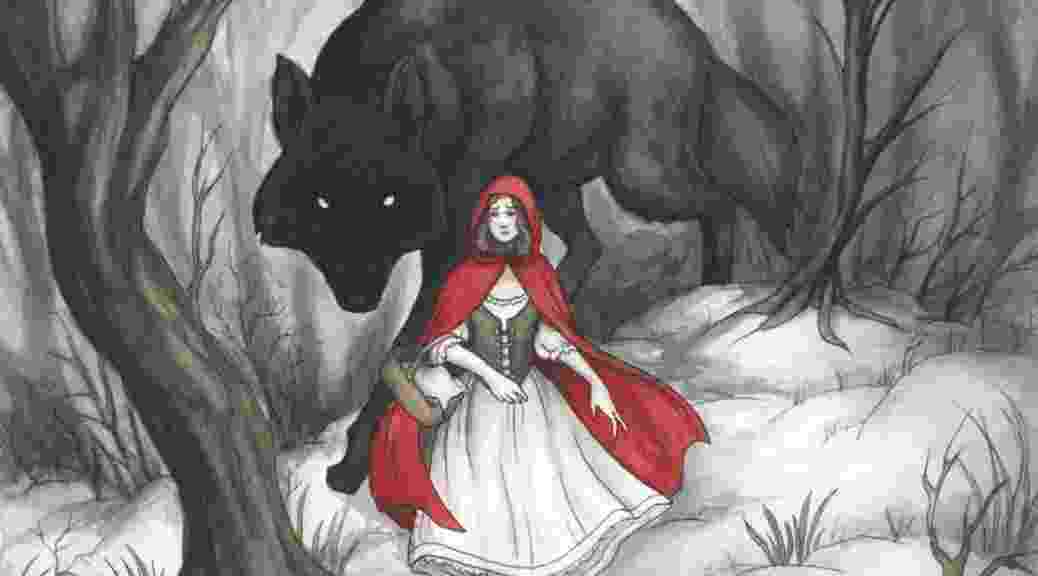
Liz Arevalo-Fairytales: He’s bad, you should’ve listened
The tale of Little Red Riding Hood is a story that addresses two big ‘struggles’ as Coles claims that we have faced as a society for centuries. Coles claims that these “…stories…broaden(ing) and even heighten(ing)…our struggles,” and he’s right. Little Red Riding Hood is a tale meant to teach a lesson to all children about the bad intentions that some people may have and comes to show how society perceives women and the sexism our society faces.
As an overly protective older sister I have always told my brothers to not talk to strangers. Not necessarily to avoid them but to merely just be cautious of what they tell people who they do not know. Little Red Riding Hood tales do the same thing but in different ways. This little girl who is given a task and is expected to obey and follow instructions (more likely to make a point across and give authority to a parent or guardian) and then finds herself in some trouble when the bad ‘guy’ in this case the wolf asks where she is going and she tells him. Children are innocent and since they are younger they do not yet know that sure enough not everyone has good intentions and some may even want to purposely harm them just like the wolf does in the story. The wolfs intentions were bad from the beginning he’s hungry and he has one goal; to eat the child. The lesson to be learned in this tale of not following instructions and learning that not everyone is good is described in the tale Little Red Cap by Brothers Grimm “Never again will you stray from the path and go into the woods, when your mother has forbidden it.”
In several of these different versions of Little Red Riding Hood another issue that is indirectly addressed is the way society has viewed woman for centuries. Girls(women in general) are often perceived as eye candy; “If you set eyes on her you could not but love her” Little Red Cap by Brothers Grimm. Which then leads me to the next point about sexism. The wolf is bad and it is implied that he is male but why is that? Why is Little Red Riding Hood the naive, pretty little girl who is expected to obey and listen and why is the wolf implied to be a male who is automatically bad and dangerous. As seen in this version of the story Little Red Riding Hood by Charles Perrault “He threw himself on the good woman and devoured her in no time…” Both men and women can be evil and not good people but why is the man automatically the dangerous, harmful one. What message do we indirectly give the little boys who read/get read this story ‘when you grow up you’ll probably be a bad guy and the girls are automatically the good and pretty ones’? In a perfect world I’d be much happier if little boys would not be told that they are indirectly evil and have bad intentions with every “pretty” girl that they too can be nice, kind and always have respect for the opposite gender as well as for themselves. There is bad people everywhere, not everyone has genuinely good intentions. That’s something I try and communicate to my brothers as they get older; that the world will not treat you better just because you are a good person.


3 Replies to “Liz Arevalo-Fairytales: He’s bad, you should’ve listened”
This is such a great point: “What message do we indirectly give the little boys who read/get read this story ‘when you grow up you’ll probably be a bad guy and the girls are automatically the good and pretty ones’?” Yes! What identities are we offering little boys in these tales? Can they only be hero or villain? Great response
I really like your point of view, you are so right, boy or girl you always have to teach children to be cautious, because children need to learn just because they may treat everyone nicely, they may not be treated as nice.
I also noticed that when I picture this story I would envision the wolf to be a male and Little Red Riding Hood is always a pretty little girl. We have been so conditioned by society that we always see males as threatening and little girls as weak. The role reversal is hardly seen in stories even though it is so common in the real world.